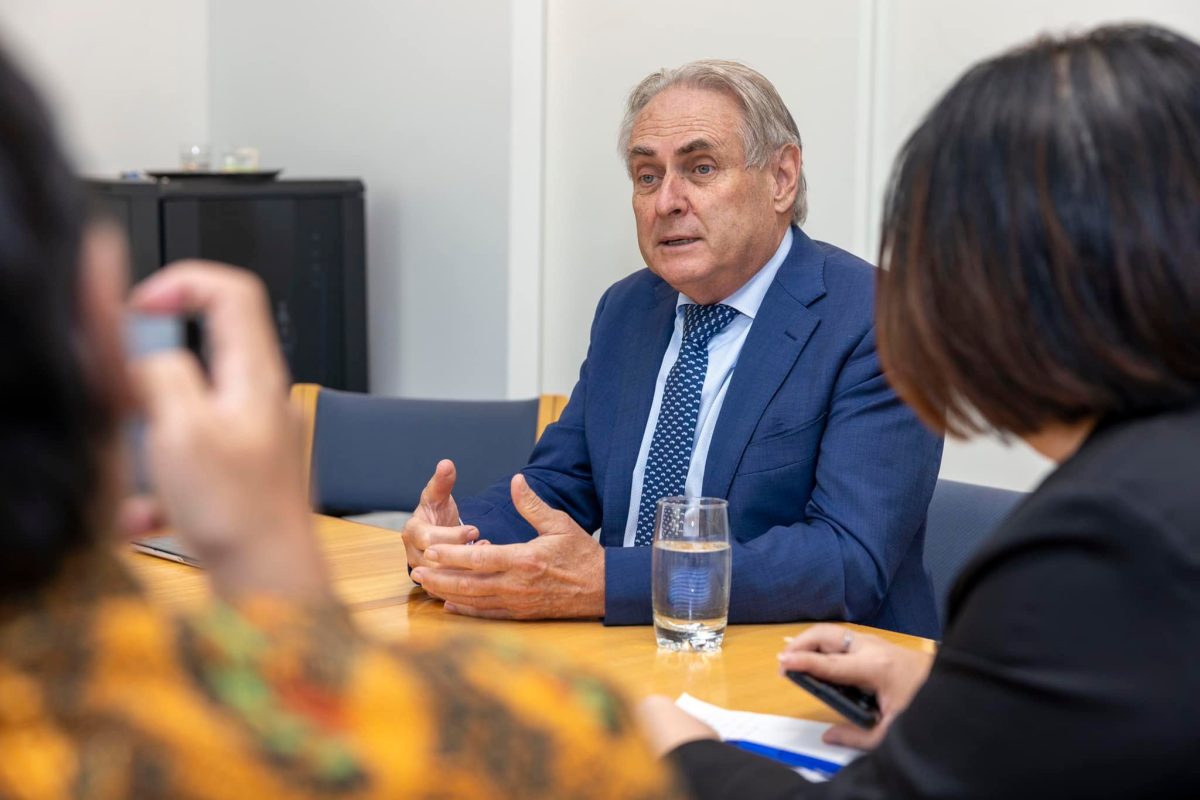
Trade and Investment Minister Don Farrell says boosting trade and investment with South East Asia is a top priority for the government. Photo: Facebook/Don Farrell.
The Joint Standing Committee on Trade and Investment Growth (JSCOM) told the government in its interim report into the Australian Government’s approach to negotiating trade and investment agreements that it should bolster transparency, accountability and oversight when negotiating trade agreements.
Chair of the Committee Steve Georganas (Member for Adelaide, ALP) said while the current approach has served the country well, a new one could ensure agreements are of greatest benefit to the community.
“It’s evident to the committee that more transparent consultation processes will allow increased understanding of the impact of trade agreements on stakeholders and that better utilising their insights and expertise can contribute to improved negotiation outcomes for Australia.”
So far, the inquiry has held six public hearings in Canberra and Melbourne, and received 54 submissions from the public, private and academic spheres.
Many participants said the need for greater transparency, accountability and oversight in the negotiation process was largely due to the encroachment of trade agreements on more areas of policy and law-making. As a result of this growing complexity and scope, there’s been a wider impact on stakeholders and the public.
The inquiry provided five recommendations:
- Establishing a tripartite trade advisory committee to achieve a better balance between transparency and confidentiality in negotiations, enabling in-depth and informed feedback to government.
- Codifying the practice of publishing information outlining negotiation aims and objectives for all future trade and investment agreement negotiations.
- Providing transparency and information to stakeholders and the public about negotiations equivalent to the information provided by the other party.
- Regular briefings to parliamentary committees on the status and progress of trade and investment agreements.
- Undertaking independent periodic reviews of agreements to ensure that they are operating as intended and achieving the expected benefits.
Inspiration was taken from the US and its trade advisory committee system, and clearer advisor framework for improving transparency in consultation.
However, Clare Middlemas from the ACTU said when you look at their cleared adviser system as a whole, “it is quite unbalanced towards business”.
“We think in order to be effective, any system that is set up really needs to have equal representation from unions and business in a tripartite sense and include the voices of First Nations people and other civil society organisations,” said Ms Middlemas.
Many also endorsed the EU’s approach of making more trade negotiation information publicly available, thereby improving the degree of transparency before, during and after negotiations.
The EU makes its draft ‘negotiation directives’ publicly available before negotiations commence and publishes draft agreement text for each chapter; publishes materials for interested stakeholders during negotiations; and makes available the negotiated agreement text and supporting material before signing.
As for JSCOM’s recommendation to enlarge the role of Parliament in trade agreement negotiations for improved accountability and oversight, they took examples from the US and Canada into account.
In the US, Congressmembers have a greater role in trade and investment negotiations, which the executive does.
The Australian Fair Trade & Investment Network Ltd (AFTINET) noted in their submission that Congress must approve the aims and objectives of the negotiation before they commence, can request regular reports on the negotiations, and must see and vote on the whole text of the trade agreement before signing, legislation and ratification.
Canada, like Australia, allows the executive to explore proposals for potential agreements but seeks authority from Cabinet before entering formal negotiations.
JSCOM’s final report will cover the inquiry’s remaining Terms of Reference, which includes building on stakeholder consultation and engagement with First Nations, states and territories. Along with determining the cost-benefit of trade agreements, the role of impact assessments, and the mass of evidence provided on their contents.






